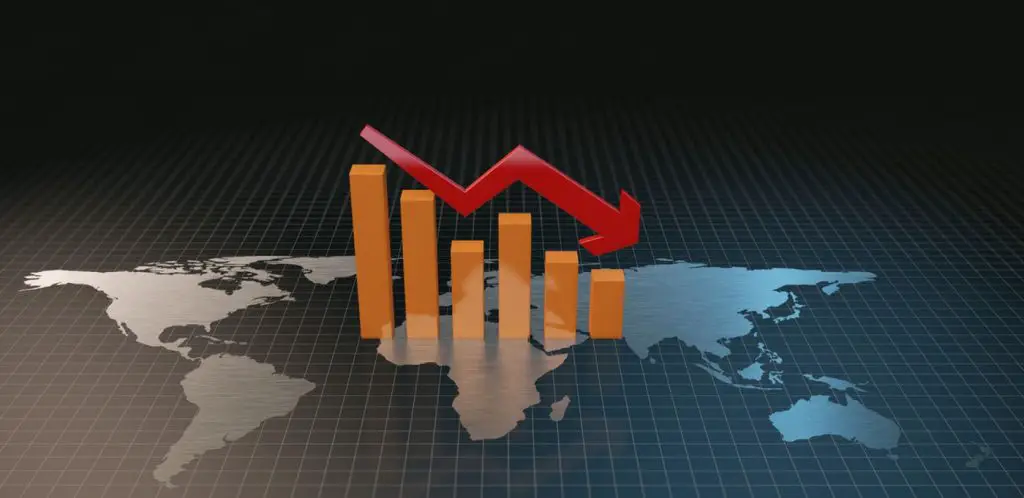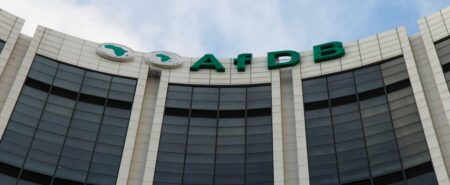A global recession is no longer a matter of speculation.
It is now a matter of fact.
The global recession is now a matter of when and not a matter of it. This is the case if recent reports from CNN are anything to go by. An economic winter brought on by a global recession is important for investors if they are to brace their portfolios and ride out the economic storm and froth in the global capital markets.
- Global recession is now a matter of certainty. There had been speculation as to its likelihood. Now it is here.
- Research conducted by Ned Davis Research found the likelihood of a global recession at 98.1%.
- The World Economic Forum echoed similar sentiments in their Chief Economists’ Outlook Report on the prospects of a global recession.
The CNN Business report compiled by Julia Horowitz, Anna Cooban, Mark Thompson, Matt Egan and Chris Isidore published on the 2nd of October 2022 stated that, “Around the world, markets are flashing warning signs that the global economy is teetering on a cliff’s edge. Over the past week, the pulse of those flashing red lights quickened as markets grappled with the reality — once speculative, now certain — that the Federal Reserve will press on with its most aggressive monetary tightening campaign in decades to wring inflation from the US economy. Even if that means triggering a recession.
And even if it comes at the expense of consumers and businesses far beyond US borders.”
So certain is the prospect of global recession that a report published by Ned Davis Research predicts that the likelihood of it taking place is 98.1%. The research firm devised a model that predicts the chances of a global recession occurring at different points in time.
CNN Business went on to comment that the only time that the model by Ned Davis Research had economic readings this high was during the Great Recession of 2008 to 2009 and the economic downturn of 2020. Ned Davis Research’s report further predicts that the global recession will extend well into 2023 and that its impact will extend beyond the borders of the United States of America.
The case for the likelihood of a global recession was further reinforced by a survey conducted by the World Economic Forum. This survey found that seven out of 10 economists considered a global recession at least somewhat likely. Economists dialed back their forecasts for growth and expect inflation-adjusted wages to keep falling the rest of this year and next.
The World Economic Forum reported, “Prospects for the global economy have deteriorated further since the May 2022 edition of this report, with expectations for growth pared back across all regions. Almost nine out of 10 chief economists expect Europe’s growth to be weak in 2023, while moderate growth is expected in the Middle East and North Africa (MENA) region, the US, South Asia, and Latin America.”
- CNN identified markers indicating the arrival of the said global recession. The markers include a strong US dollar, constrained consumption in the US market, slowing US GDP growth, slowing corporate earnings, and high oil prices.
- The global recession has also been caused by the activities of leading central banks in response to resurgent inflation and low growth.
- In tackling the global recession central banks have responding by tightening money supply by steadily and aggressively increasing interest rates.
The negative outlook for growth is driven by inflation partly by high inflation which has triggered aggressive responses by the monetary authorities of most countries to tighten liquidity. This week the Chairman of the United States Federal Reserve, Jerome Powell mentioned that there was no solution to the current inflation problem that would not involve some degree of pain.
This is after reports surfaced that the Fed’s crusade against inflation could cost as much as 1.2 million jobs in the United States alone. The Federal Reserve has been increasing interest rates which directly impact the price of money. In September, the Fed announced its third 75 basis point increase in interest rates. The rate hikes like other central banks in the rest of the world are to cool the effect of inflation in their respective economies.
Raising interest rates slows down aggregate demand in an economy and consequently pulls down the general price level.
Interest rate hikes are most appropriate when an economy is overheating from perhaps excessive demand or excessive liquidity. This excessive liquidity can in most instances lead to speculative behavior in the markets. Therefore, an increase in the price of money reduces the demand for liquidity and cash scarce…
Interest rates when increased, temper the demand for cash, especially cash to make speculative investments.
- Investors looking to preserve value and optimize their portfolios need to look at what opportunities the prospect of a global recession offers them and position their investments appropriately.
- In a recession typically and global recession specifically the best strategy for investors is build up their cash reserves in anticipation of picking up quality assets at bargain prices.
However, this bout of inflation is not the result of excessive liquidity as it were. Inflation currently is being driven by supply chain constraints and the sudden increase in the cost of critical production components like the price of oil, food, and fertilizers. Consumers were already in a tight squeeze from these supply chains and the resulting inflation. The last thing that they need are increasing interest rates.
An alternative to the painful increases in interest rates would be for the United States and other countries of the world to follow the example of Germany through its supply-side intervention to prop up the economy and the country’s citizens. The country announced a EUR 65 billion stimulus package to support its citizens by subsidizing among other things their energy bills.
This is also what the new British government had in mind with their economic plan which include increasing the government’s borrowings to fund their plan to cut taxes. The IMF sounded the warning bell on these plans. Its concern is that such a plan would lead to inequality. Supply side interventions require than a nation have substantial amounts of foreign exchange reserves at their disposal which they can use to absorb external shocks like the global bout of inflation. Germany has significant reserves and as such can afford to make the necessary supply side interventions without the use of unsustainable borrowings.
CNN identified markers which indicate that the recession is here. The first marker is the resurgent strength of the United States dollar. This is good for consumers who are based in the US but is complicated for everyone else. The US dollar plays an outsized role in the global economy and international finance. And right now, it is stronger than it’s been in two decades according to CNN. This is because of the Fed’s aggressive monetary policy which has been characterized by increasing interest rates.
- Raising interest rates in an environment already characterized by stagflation, which is low economic growth and high inflation will ultimately lead to economic pain for consumers.
- Federal Reserve chairman said that economic pain from rising interest rates was necessary to counter the rising tide of inflation. The unfortunate consequence is that the rising interest rates have led to global recession that the world is contending with.
- Some economists contend that the global recession will run well into 2023.
The high-interest rates have made the United States dollar more appealing to investors who are piling into the greenback. The value of other currencies has tumbled: the pound, yuan, euro, and the yen. This depreciation in other currencies makes imports for these countries more expensive in United States dollars. The case for a recession caused by a strong dollar is grimmer in Africa where just about every country on the continent is overextended in terms of United States dollar-denominated borrowings.
Repaying loans in hard currency will be more expensive, especially where their currencies are rapidly depreciating.
The strong US dollar according to CNN has a destabilizing effect on Wall Street.
Companies listed on that bourse conduct business internationally, and a strong dollar will negatively impact their earnings. The second marker of the global economic recession is that US economy is slowing down or stalling. The world’s largest economy is driven by consumption.
Consumers have slowed down on consumption since the advent of inflation because their wages have not kept up with the rate of inflation. American corporations are bracing themselves for reduced profits.
This is the third indicator of a global recession. According to the CNN Business Report the profits of large American corporations had been booming during the pandemic era because of what the publication called “tenacious American shoppers” which enabled them to pass on rising costs to consumers.
In September, FedEx warned that it was experiencing softening demand and expected its profits to reduce by as much as 40%.
Wall Street has officially entered a bear market. A bear market is when a market experiences prolonged price declines. On Wall Street, stocks are now on track for their worst year since 2008. This is different from last year when the market soared. CNN reports that “The party lasted until early 2022. But as inflation set in, the Fed began to take away the proverbial punch bowl, raising interest rates and unwinding its bond-buying mechanism that had propped up the market.”
The S&P 500 is down 24% from the beginning of the year. US bond markets are also said to be in a tailspin. War and rising prices are other markers and nowhere else in the world has this impact been more visible than in Europe, which is reeling.











